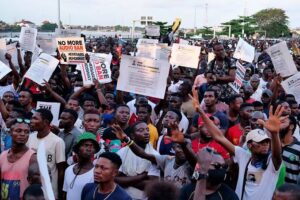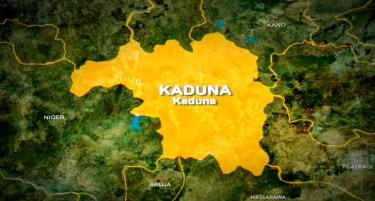The Kaduna State government has announced the imposition of a 24-hour curfew on the metropolitan cities of Kaduna and Zaria, effective immediately. This drastic measure follows an emergency security council meeting convened by Governor Uba Sani to address the deteriorating security situation in the state.
In an official statement, the Commissioner for Internal Security and Home Affairs, Samuel Aruwan, explained that the decision to enforce the curfew was necessitated by escalating violence during ongoing protests in the state. According to Aruwan, what began as peaceful demonstrations have been infiltrated by criminal elements, who have seized the opportunity to loot shops and vandalize both private and public properties. The government, concerned about the increasing threat to public safety and the potential for further unrest, deemed it necessary to impose the curfew to restore order.
The statement from the government urges all residents to remain indoors for the duration of the curfew, emphasizing that security forces have been deployed across the affected areas to ensure the safety of lives and property. The government has also reassured citizens that the situation is being closely monitored, and the curfew will be lifted as soon as it is deemed safe.
This development in Kaduna State is not an isolated incident, as similar measures have been taken in other parts of Nigeria in response to escalating violence and protests. In Plateau State, Governor Caleb Mutfwang announced a 24-hour curfew in the Jos-Bukuru metropolis, which came into effect at midnight on Sunday, August 4, 2024. The curfew in Plateau was also implemented to curb violence that erupted during protests, with reports of clashes between protesters and security forces.
 Similarly, in Katsina State, the Police Command has reiterated the enforcement of an ongoing curfew in Dutsinma Local Government Area, where a 24-hour curfew remains in place. In addition, a twelve-hour (12 hrs) curfew, from 7:00 pm to 7:00 am, continues to be enforced across the remaining 33 Local Government Areas (LGAs) of the state. These measures have been introduced in response to rising tensions and security concerns in the region.
Similarly, in Katsina State, the Police Command has reiterated the enforcement of an ongoing curfew in Dutsinma Local Government Area, where a 24-hour curfew remains in place. In addition, a twelve-hour (12 hrs) curfew, from 7:00 pm to 7:00 am, continues to be enforced across the remaining 33 Local Government Areas (LGAs) of the state. These measures have been introduced in response to rising tensions and security concerns in the region.
The imposition of curfews in Kaduna, Plateau, and Katsina states underscores the serious nature of the current security challenges facing various parts of Nigeria. The authorities are keenly aware of the need to maintain law and order while addressing the underlying issues that have sparked these protests. However, the extended restrictions on movement and daily activities are likely to have significant implications for the local population, affecting businesses, education, and access to essential services.
As the situation unfolds, the governments of these states have urged residents to cooperate fully with the imposed restrictions and to remain calm while security agencies work to restore peace and stability. The authorities have also warned that anyone found violating the curfew will face strict penalties, as the state governments are determined to prevent further escalation of violence.
For now, the priority remains the protection of lives and property, and the governments are appealing to citizens to stay indoors, stay informed, and report any suspicious activities to the relevant security agencies. The hope is that with these stringent measures in place, normalcy can be restored sooner rather than later, allowing the people of Kaduna, Plateau, and Katsina states to resume their daily lives without fear of violence or unrest.




